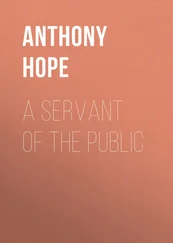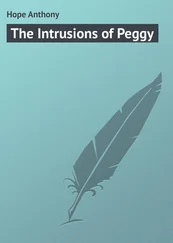Anthony Hope - Tales of two people
Здесь есть возможность читать онлайн «Anthony Hope - Tales of two people» — ознакомительный отрывок электронной книги совершенно бесплатно, а после прочтения отрывка купить полную версию. В некоторых случаях можно слушать аудио, скачать через торрент в формате fb2 и присутствует краткое содержание. ISBN: , Жанр: foreign_prose, на английском языке. Описание произведения, (предисловие) а так же отзывы посетителей доступны на портале библиотеки ЛибКат.
- Название:Tales of two people
- Автор:
- Жанр:
- Год:неизвестен
- ISBN:http://www.gutenberg.org/ebooks/49630
- Рейтинг книги:5 / 5. Голосов: 1
-
Избранное:Добавить в избранное
- Отзывы:
-
Ваша оценка:
- 100
- 1
- 2
- 3
- 4
- 5
Tales of two people: краткое содержание, описание и аннотация
Предлагаем к чтению аннотацию, описание, краткое содержание или предисловие (зависит от того, что написал сам автор книги «Tales of two people»). Если вы не нашли необходимую информацию о книге — напишите в комментариях, мы постараемся отыскать её.
Tales of two people — читать онлайн ознакомительный отрывок
Ниже представлен текст книги, разбитый по страницам. Система сохранения места последней прочитанной страницы, позволяет с удобством читать онлайн бесплатно книгу «Tales of two people», без необходимости каждый раз заново искать на чём Вы остановились. Поставьте закладку, и сможете в любой момент перейти на страницу, на которой закончили чтение.
Интервал:
Закладка:
“Certainly I might give him leave if he asked for it,” retorted the Marchesa rather sharply. “But he doesn’t. He orders me to open my gate – and tells me he means to bathe! As if I cared whether he bathed or not! What is it to me, I ask you, Violet, whether the man bathes or not?”
“I beg your pardon, Marchesa, but aren’t you getting a little off the point?” Stillford intervened deferentially.
“No, I’m not. I never get off the point, Mr Stillford. Do I, Colonel Wenman?”
“I’ve never known you to do it in my life, Marchesa.” There was, in fact, as Lynborough had ventured to anticipate, a flush on the Marchesa’s cheek, and the Colonel knew his place.
“There, Mr Stillford!” she cried triumphantly. Then she swept – the expression is really applicable – across the room to her writing-table. “I shall be courteous, but quite decisive,” she announced over her shoulder as she sat down.
Stillford stood by the fire, smiling doubtfully. Evidently it was no use trying to stop the Marchesa; she had insisted on locking the gate, and she would persist in keeping it locked till she was forced, by process of law or otherwise, to open it again. But if the Lords of Scarsmoor Castle really had used it without interruption for fifty years (as Lord Lynborough asserted) – well, the Marchesa’s rights were at least in a precarious position.
The Marchesa came back with her letter in her hand. “ ‘The Marchesa di San Servolo,’ ” she read out to an admiring audience, “ ‘presents her compliments to Lord Lynborough. The Marchesa has no intention of removing the padlock and other obstacles which have been placed on the gate to prevent trespassing – either by Lord Lynborough or by anybody else. The Marchesa is not concerned to know Lord Lynborough’s plans in regard to bathing or otherwise. Nab Grange; 13th June.’ ”
The Marchesa looked round on her friends with a satisfied air.
“I call that good,” she remarked. “Don’t you, Norah?”
“I don’t like the last sentence.”
“Oh yes! Why, that’ll make him angrier than anything else! Please ring the bell for me, Mr Stillford; it’s just behind you.”
The butler came back.
“Who brought Lord Lynborough’s letter?” asked the Marchesa.
“I don’t know who it is, your Excellency – one of the upper servants at the Castle, I think.”
“How did he come to the house?”
“By the drive – from the south gate – I believe, your Excellency.”
“I’m glad of that,” she declared, looking positively dangerous. “Tell him to go back the same way, and not by the – by what Lord Lynborough chooses to call ‘Beach Path.’ Here’s a letter for him to take.”
“Very good, your Excellency.” The butler received the letter and withdrew.
“Yes,” said Lady Norah, “rather funny he should call it Beach Path, isn’t it?”
“I don’t know whether it’s funny or not, Norah, but I do know that I don’t care what he calls it. He may call it Piccadilly if he likes, but it’s my path all the same.” As she spoke she looked, somewhat defiantly, at Mr Stillford.
Violet Dufaure, whose delicate frame held an indomitable and indeed pugnacious spirit, appealed to Stillford; “Can’t Helena have him taken up if he trespasses?”
“Well, hardly, Miss Dufaure. The remedy would lie in the civil courts.”
“Shall I bring an action against him? Is that it? Is that right?” cried the Marchesa.
“That’s the ticket, eh, Stillford?” asked the Colonel.
Stillford’s position was difficult; he had the greatest doubt about his client’s case.
“Suppose you leave him to bring the action?” he suggested. “When he does, we can fully consider our position.”
“But if he insists on using the path to-morrow?”
“He’ll hardly do that,” Stillford persuaded her. “You’ll probably get a letter from him, asking for the name of your solicitor. You will give him my name; I shall obtain the name of his solicitor, and we shall settle it between us – amicably, I hope, but in any case without further personal trouble to you, Marchesa.”
“Oh!” said the Marchesa blankly. “That’s how it will be, will it?”
“That’s the usual course – the proper way of doing the thing.”
“It may be proper; it sounds very dull, Mr Stillford. What if he does try to use the path to-morrow – ‘in order to bathe’ as he’s good enough to tell me?”
“If you’re right about the path, then you’ve the right to stop him,” Stillford answered rather reluctantly. “If you do stop him, that, of course, raises the question in a concrete form. You will offer a formal resistance. He will make a formal protest. Then the lawyers step in.”
“We always end with the lawyers – and my lawyer doesn’t seem sure I’m right!”
“Well, I’m not sure,” said Stillford bluntly. “It’s impossible to be sure at this stage of the case.”
“For all I see, he may use my path to-morrow!” The Marchesa was justifying her boast that she could stick to a point.
“Now that you’ve lodged your objection, that won’t matter much legally.”
“It will annoy me intensely,” the Marchesa complained.
“Then we’ll stop him,” declared Colonel Wenman valorously.
“Politely – but firmly,” added Captain Irons.
“And what do you say, Mr Stillford?”
“I’ll go with these fellows anyhow – and see that they don’t overstep the law. No more than the strictly necessary force, Colonel!”
“I begin to think that the law is rather stupid,” said the Marchesa. She thought it stupid; Lynborough held it iniquitous; the law was at a discount, and its majesty little reverenced, that night.
Ultimately, however, Stillford persuaded the angry lady to – as he tactfully put it – give Lynborough a chance. “See what he does first. If he crosses the path now, after warning, your case is clear. Write to him again then, and tell him that, if he persists in trespassing, your servants have orders to interfere.”
“That lets him bathe to-morrow!” Once more the Marchesa returned to her point – a very sore one.
“Just for once, it really doesn’t matter!” Stillford urged.
Reluctantly she acquiesced; the others were rather relieved – not because they objected to a fight, but because eight in the morning was rather early to start one. Breakfast at the Grange was at nine-thirty, and, though the men generally went down for a dip, they went much later than Lord Lynborough proposed to go.
“He shall have one chance of withdrawing gracefully,” the Marchesa finally decided.
Stillford was unfeignedly glad to hear her say so; he had, from a professional point of view, no desire for a conflict. Inquiries which he had made in Fillby – both from men in Scarsmoor Castle employ and from independent persons – had convinced him that Lynborough’s case was strong. For many years – through the time of two Lynboroughs before the present at Scarsmoor, and through the time of three Crosses (the predecessors of the Marchesa) at Nab Grange, Scarsmoor Castle had without doubt asserted this dominant right over Nab Grange. It had been claimed and exercised openly – and, so far as he could discover, without protest or opposition. The period, as he reckoned it, would prove to be long enough to satisfy the law as to prescription; it was very unlikely that any document existed – or anyhow could be found – which would serve to explain away the presumption which user such as this gave. In fine, the Marchesa’s legal adviser was of opinion that in a legal fight the Marchesa would be beaten. His own hope lay in compromise; if friendly relations could be established, there would be a chance of a compromise. He was sure that the Marchesa would readily grant as a favour – and would possibly give in return for a nominal payment – all that Lynborough asked. That would be the best way out of the difficulty. “Let us temporise, and be conciliatory,” thought the man of law.
Читать дальшеИнтервал:
Закладка:
Похожие книги на «Tales of two people»
Представляем Вашему вниманию похожие книги на «Tales of two people» списком для выбора. Мы отобрали схожую по названию и смыслу литературу в надежде предоставить читателям больше вариантов отыскать новые, интересные, ещё непрочитанные произведения.
Обсуждение, отзывы о книге «Tales of two people» и просто собственные мнения читателей. Оставьте ваши комментарии, напишите, что Вы думаете о произведении, его смысле или главных героях. Укажите что конкретно понравилось, а что нет, и почему Вы так считаете.












